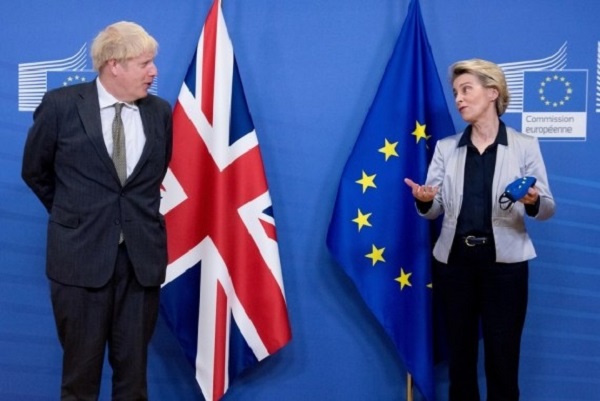
Brussels/London, (Samajweekly) Challenges lie ahead for both the European Union (EU) and the UK following the inking of a long-awaited deal laying out how the two sides would manage their future relationship from 2021 as the country has now officially exited the bloc.
Eleven months after the UK announced the departure from the EU, the two sides reached a deal featuring a zero-tariff and quota arrangement, which regulates their future relations regarding trade, fishery and security, among others, a Xinhua news agency report said on Monday.
“This is the first time the EU has ever negotiated a free trade agreement in a context of divergence, not convergence,” said Michel Barnier, the EU chief Brexit negotiator.
The EU turns a new page of the European integration project as it enters the year of 2021 with the UK not belonging to the bloc any more, demographically, politically and economically.
British Prime Minister Boris Johnson and Brexiteers cheered for the regained sovereignty.
On the other side of the English Channel, an EU statement said the deal that provides a solid basis for preserving the “longstanding friendship and cooperation” nevertheless reflects the fact that Britain can “no longer enjoy the benefits of the bloc’s membership or the single market” it used to have.
A graphic by the European Commission illustrated that Britons only kept two of a score of privileges, namely the free trade in goods and visa-free travels under 90 days, but lost the rights from visa-free travel beyond 90 days and pet passports to removal of border checks and access to Erasmus.
While the last minute effort by both sides to secure the agreement avoided the much feared no-deal scenario and created stability and predictability for traders and consumers, one has to admit that the separation is always worse than a union with the Britons on board.
Observers believe the divorce will have heavier economic toll on Britain than the remaining 27 EU member states, but it is certainly not something to celebrate for either side.
Without the UK, the EU will have a weaker economy and smaller single market.
The implementation of the agreement alone will be no easy job for the EU side either, as many issues including trade in services, foreign policy and defence cooperation remained largely uncovered in the deal, not to mention the border bureaucracies and habit change for fishing fleets.
The two sides will have to resume talks whenever issues arise concerning the governance of the agreement.
According to the European Commision, a Joint Partnership Council is established to make sure it is properly applied and interpreted.









